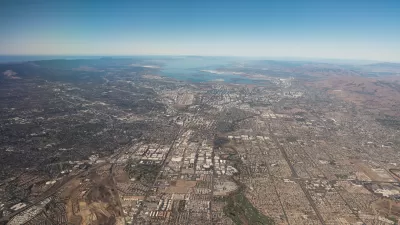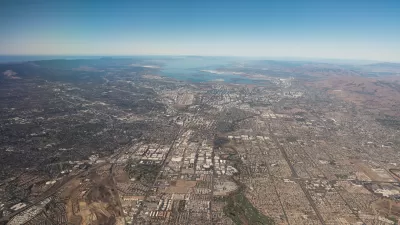Could development fights in the home of the biggest tech companies be avoided if cities just talked to each other?

San Jose City Councilman Donald Rocha (he's also, it's important to note, a candidate for county supervisor) wrote an op-ed for The Mercury News arguing that Santa Clara County needs to plan regionally.
“The city where I serve has recently had friction with its neighbors over new development projects along our borders. My observation has been that cities offer to start talking to each other when disputes arise over development projects, but there generally isn’t a forum for cities to have ongoing conversations about how to address the challenges of growth outside the context of a dispute.”
Rocha is referring at least in part to a conflict that began last summer when San Jose sued the city of Santa Clara over the environmental review for a massive mixed-use development called City Place (the county court just ruled in favor of the defendant), after which Santa Clara sued San Jose over the plan for an enormous retail/office complex called Santana West.
Silicon Valley is in the middle of a housing crisis, and part of the City Place controversy was that Santa Clara would get the jobs while San Jose would have to find housing for the people in those jobs. “One of the assumptions of our society is that economic growth is good,” Rocha writes. “There are many excellent reasons to believe that is true, but it’s also true that some of the most serious problems we face in our region are the result of our economic success.”
Citing examples from the past, Rocha proposes reviving a governing body that existed in the 1970s—“another period of rapid growth.” Facilitated by Santa Clara County, the Planning Policy Committee had two representatives from every city in the jurisdiction.
“Traffic, housing and other challenges of growth are among the most serious problems that our county faces. We will make the most progress on these challenges if we work together.”
FULL STORY: Opinion: Santa Clara County needs committee to hash out growth plans

Planetizen Federal Action Tracker
A weekly monitor of how Trump’s orders and actions are impacting planners and planning in America.

Maui's Vacation Rental Debate Turns Ugly
Verbal attacks, misinformation campaigns and fistfights plague a high-stakes debate to convert thousands of vacation rentals into long-term housing.

San Francisco Suspends Traffic Calming Amidst Record Deaths
Citing “a challenging fiscal landscape,” the city will cease the program on the heels of 42 traffic deaths, including 24 pedestrians.

Amtrak Rolls Out New Orleans to Alabama “Mardi Gras” Train
The new service will operate morning and evening departures between Mobile and New Orleans.

The Subversive Car-Free Guide to Trump's Great American Road Trip
Car-free ways to access Chicagoland’s best tourist attractions.

San Antonio and Austin are Fusing Into one Massive Megaregion
The region spanning the two central Texas cities is growing fast, posing challenges for local infrastructure and water supplies.
Urban Design for Planners 1: Software Tools
This six-course series explores essential urban design concepts using open source software and equips planners with the tools they need to participate fully in the urban design process.
Planning for Universal Design
Learn the tools for implementing Universal Design in planning regulations.
Heyer Gruel & Associates PA
JM Goldson LLC
Custer County Colorado
City of Camden Redevelopment Agency
City of Astoria
Transportation Research & Education Center (TREC) at Portland State University
Jefferson Parish Government
Camden Redevelopment Agency
City of Claremont




























